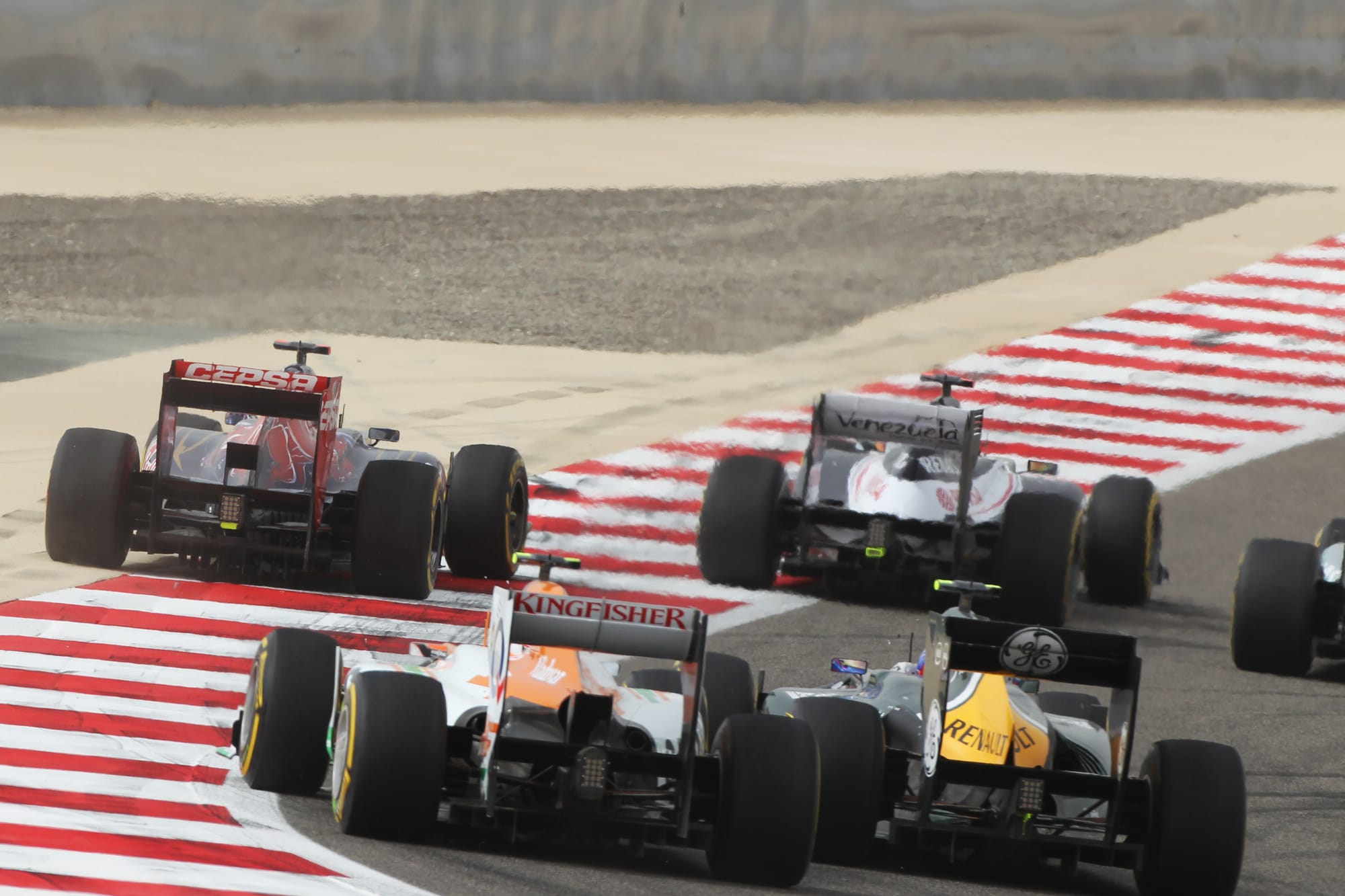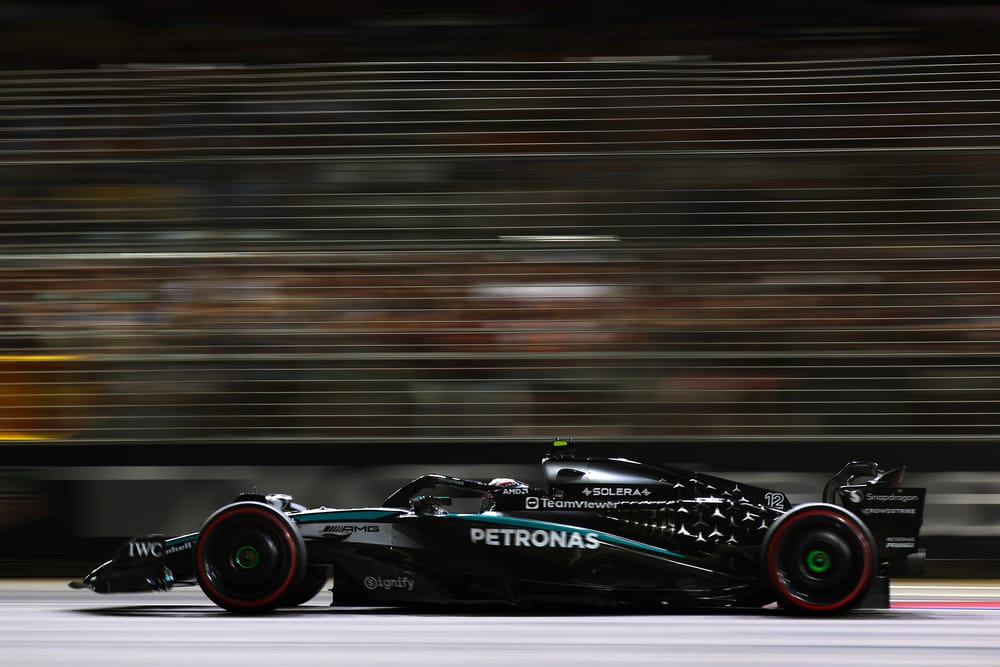There was an echo of Daniel Ricciardo in Kimi Antonelli during last weekend's Singapore Grand Prix. It was striking because of what it revealed about the Formula 1 rookie's potential, or to be precise one of the many qualities required to fulfil it.
Ricciardo isn't the obvious comparison to Antonelli. They are very different drivers, taking their early steps in grand prix racing in entirely different cars and circumstances, but after qualifying something Antonelli said led me to make the connection to the 2012 Bahrain Grand Prix.
There, Ricciardo produced an astonishing performance to put his Toro Rosso sixth on the grid, a memorable achievement in itself. But what happened a day later made the bigger impression on me. Ricciardo made a bad start, losing places thanks to a mediocre launch and finishing the first lap an abysmal 17th. He went on to finish a lap down.
He was still in his overalls and yet to return to the team when I heard from him just after he'd completed his TV pen duties. The reason that race day in Bahrain left such a mark, and made me realise how much promise there was in a driver who had already proved he was very fast, was what he said.
There were no excuses, no blaming misfortune, a mystery lack of grip, other drivers or the alignment of the planets. Instead, he understood that while he'd not had a great launch, it was the fact he failed to get his head in the game and limit the losses once he got to the first corner that really cost him.

He was still thinking about what he'd lost, reacting emotionally, rather than stabilising the situation and consolidating his place in the pack, which is what turned what might still have been a position in the points to one near the back. He was kicking himself because he recognised his blunder, and surely internalised the lessons for future reference.
Fast-forward 13 years and Antonelli demonstrated the same quality after qualifying in Singapore. He'd qualified fourth, on paper a decent enough result, but he knew he'd underdelivered. Having driven well throughout practice, he knew he had a shot at something special, perhaps even pole position. However, it was the realisation of why Q3 had gone wrong, or to be precise what was wrong with his driving, that signalled he's a driver with the mentality to refine his talent into performances as he builds experience.
"In Q3, I let the emotion...my emotion got over [me] and I just started to drive a bit tense because I felt I had a real shot to [get on] at least the front row. But then, I started to overdrive, I started to push more and more, starting to carry a lot of speed into the corner. But it was just too much over the limit.
"It was a shame, because I look at the data and most of the corners were quicker also compared to Q2, but in those few corners I just pushed too much and corners where I didn't have to push anymore, because we were already quick. And I just lost it all. It was a shame. I feel disappointed because the potential was a lot higher."
Some might shrug it off as the usual post-session driver talk, but it's important because it shows Antonelli is willing to take responsibility for his own performances and capable of quickly and efficiently pinpointing what went wrong.
The circumstances were different to Ricciardo's, but the mechanism is the same: digest and understand what's happened and grasp your contribution was to it.
Was this really bad luck or some external problem, or was it in your control? Recognising this is an essential skill for anyone who aspires to be more than just a decent grand prix driver, as even though some of the best wouldn't be so frank about it in an interview they will, in their own minds, understand it. And while understanding it doesn't necessarily mean you can apply the lessons, you at least know where you need to work. Grasping that is a prerequisite to tackling the weakness.
This is a microcosm of what it is to achieve at this level. There's all sorts of ways to talk about this, whether it's 'clutch' performances, rising to the occasion, stepping up to the plate - the cliches are endless and litter sports coverage across every discipline.
But what it boils down to is not suddenly finding a higher level of performance, but being able to execute your skills (an eye-rolling phrase given its widespread use in sport, but one that really does capture the meaning) and deliver your best when it matters most. It's a key aspect of excellence, because practice situations are completely different to those in qualifying or the race even though the skillset you deploy remains the same.
This is a mere snapshot and is no guarantee of a glorious future for Antonelli, but it reveals that he has the mindset needed to keep improving rather than stagnating. Whether he has the capacity to cast aside the emotion and the tension next time is another question, one that will be answered in the coming years.
However, if he can do what Ricciardo did in nailing his first lap the next time he started so high - something that didn't happen for almost a year at the 2013 Chinese GP - then that's evidence Antonelli is on the right track.



